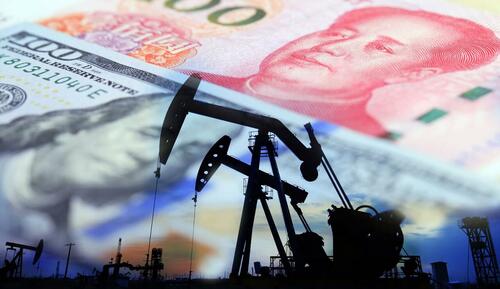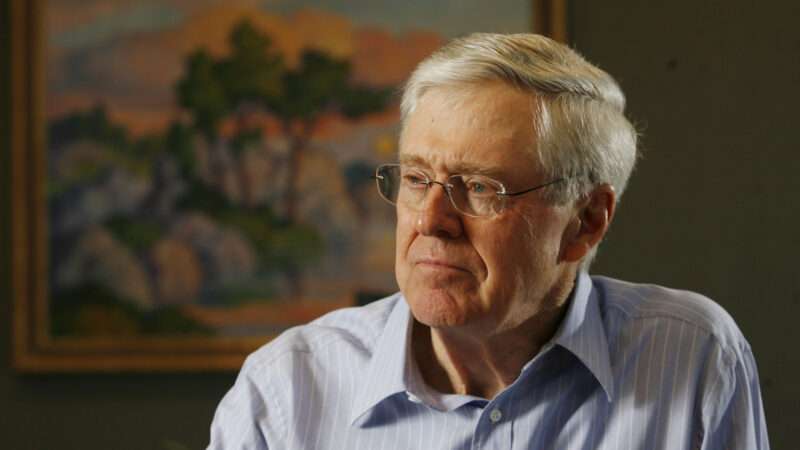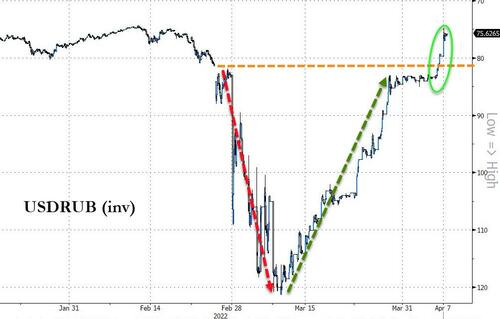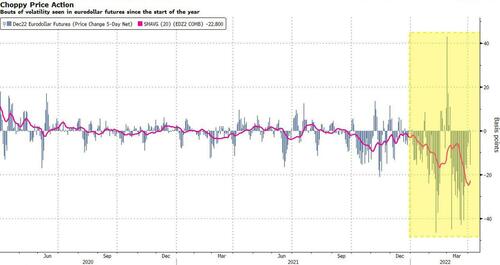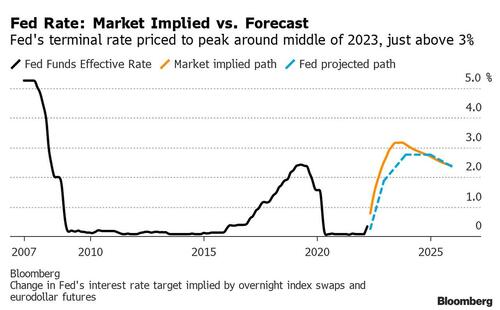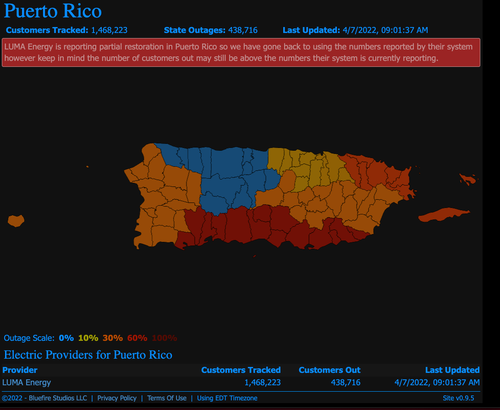Bretton Woods III? China Begins Buying Russian Coal And Oil In Yuan
The old economic order, in which the dollar’s centrality to global trade remains king, is beginning to fade. The latest example of the dollar’s demise comes as China purchases coal and oil from Russia in yuan due to Western sanctions isolating Russian banks from the SWIFT payment system.
Chinese commodity firms purchased Russian coal in local currency in March, and the first shipments are expected to arrive in China this month, according to Bloomberg, citing Chinese consultancy Fenwei Energy Information Service Co. Traders said this coal shipment paid in yuan would be the first since the U.S. and Europe unleashed harsh sanctions severing some top Russian banks from SWIFT.
Traders are also reporting Russian crude bought in yuan. The first Eastern Siberia Pacific Ocean grade crude shipment will arrive at Chinese refiners in May.
Russia and China trading yuan for commodities is just one example of a new emerging economic order.
Premium subs should recall former N.Y. Fed repo guru and current Credit Suisse strategist Zoltan Pozsar’s stunning note last week that said the consequences of the Ukraine war are ushering in “the birth of the Bretton Woods III – a new world (monetary) order centered around commodity-based currencies in the East that will likely weaken the Eurodollar system and also contribute to inflationary forces in the west.”
Fast forwarding to the punchline, Poszar wrote that if the framework he has laid out previously (and again, in his latest note) is the right framework to think about how to trade interest rates in coming years, inflation will be higher; the level of rates will be higher too; demand for commodity reserves will be higher, which will naturally replace demand for FX reserves (Treasuries and other G7 claims); Meanwhile, demand for dollars will be lower too as more trade will be done in other currencies; and as a result of this, the perennially negative cross-currency basis (the dollar premium) will naturally fade away and potentially become a positive cross-currency basis.
Translation: the dollar is on its way out as the world’s undisputed reserve currency, a consequences of events that put in motion when Putin invaded Ukraine (with the implicit blessing of China and India) and when the West decided to expel Russia from the entire western financial system.
It is this chain of events that Pozsar calls Bretton Woods III and the reports of China’s purchases of oil and coal in yuan (not dollars) suggesting the path to that new world order is accelerating faster that many hoped (as the surge in the Ruble may also suggest).
Pozsar spoke with Bloomberg’s Joe Weisenthal and Tracy Alloway this week and recited his Bretton Woods III thesis, suggesting:
“Instead of a Volcker moment, we got a Putin moment and we basically have war and out of this war, something will also emerge.
“Out of this, I think this ‘Bretton Woods III’ that I started to kind of develop and run with, is a world where we are, again, going to go back to commodity-backed money — where gold, once again, is going to play a big role. And not just gold, but I think all forms of commodities,” Pozsar said.
To the Credit Suisse strategist’s point, the global financial system’s plumbing is being reworked, and the dollar’s dominance in global trade is being challenged.
As Pepe Escobar recently noted, Iran has shown how to do it.
Persian Gulf traders confirmed to The Cradle that Iran is selling no less than 3 million barrels of oil a day even now, with no signed JCPOA (Joint Comprehensive Plan of Action agreement, currently under negotiation in Vienna). Oil is relabeled, smuggled, and transferred from tankers in the dead of night.
All the blather about “crashing Russian markets,” ending foreign investment, destroying the ruble, a “full trade embargo,” expelling Russia from “the community of nations,” and so forth –that’s for the zombified galleries. Iran has been dealing with the same thing for four decades, and survived.
Moscow is also considering a rupee-ruble payment system for Indian oil traders, while Saudi Arabia could start pricing some of its brent in yuan for Chinese traders.
“The oil market, and by extension the entire global commodities market, is the insurance policy of the status of the dollar as reserve currency,” said economist Gal Luft, co-director of the Washington-based Institute for the Analysis of Global Security who co-wrote a book about de-dollarization.
“If that block is taken out of the wall, the wall will begin to collapse.”
A drop in the demand for dollars would be bad news for a US government that depends on dollar demand to fund its out-of-control spending. As Michael Maharrey recently wrote, imagine a world in which the Chinese didn’t need dollars.
China ranks as the biggest foreign holder of US debt. If it continues to divest itself of dollars, who will pick up the slack? The Federal Reserve has been buying Treasuries hand over fist for the last two years, keeping its big fat thumb on the bond market. But it’s tapering purchases and supposedly planning on shrinking its balance sheet. If global demand for Treasuries drop precipitously — and it would in a world without the petrodollar — the US government would either have to drastically cut spending or the Fed would have to continue printing money to monetize the debt.
Even if this is nothing but talk, it underscores the fact that the dollar is on shaky ground. US policymakers would be wise to consider future dollar weaponization carefully.
Tyler Durden
Thu, 04/07/2022 – 11:22
via ZeroHedge News https://ift.tt/Vs5QSdN Tyler Durden
